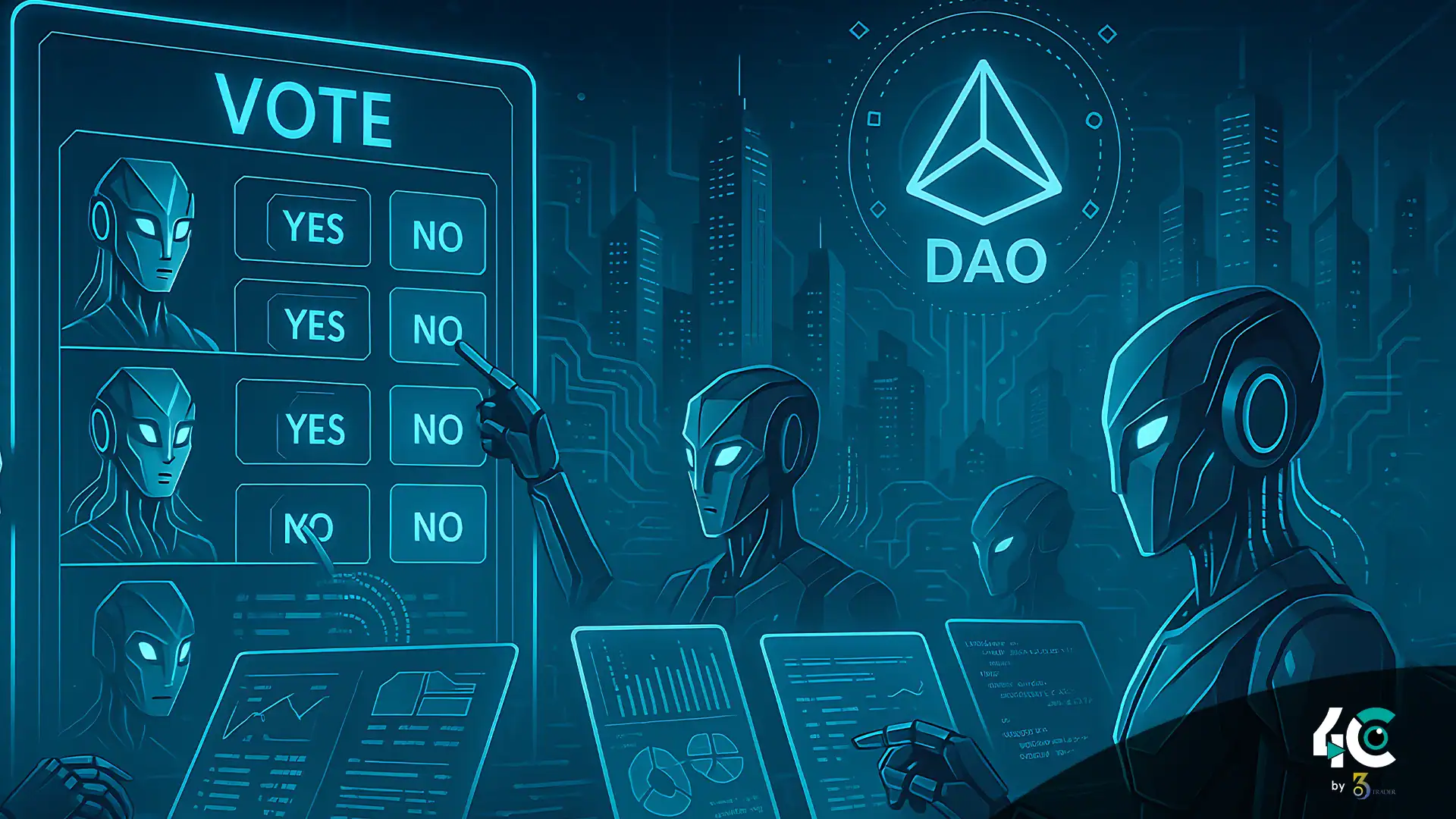AI-powered DAOs are ushering in a new era of governance where self-learning bots make autonomous decisions. These systems are redefining how decentralized organizations function, blending artificial intelligence with blockchain transparency.
What Are AI-Powered DAOs?
The blockchain-based decentralized autonomous organization is governed by smart contracts and collective decision-making. Governance tokens allow members to propose, deliberate, and vote on various initiatives. Nonetheless, a government run by humans has its flaws that delay decision-making and create bias and inefficiency.
AI-DAOs use artificial intelligence to replace or enhance parts of their governing protocol. The self-learning bots or agents can analyze data and estimate the future for taking action. Thus, it reduces inefficiency and enables dynamic decision-making.
Key Features of AI-Integrated DAOs
- An agent is autonomous AI software that completes tasks like voting, allocating funds, optimizing resources and more without requiring human intervention.
- Complex machine learning algorithms make decisions that more closely align with future objectives.
- Adaptive governance is an active self-learning system that improves itself through learning.
How AI Could Transform DAO Governance
AI can bring innovation to the management of a DAO in various ways.
1. Automated Proposal Evaluation
AI-powered robots can evaluate proposals submitted to a DAO to see if they are feasible, and more! For example.
- Tools for natural language processing help shorten complex proposals for voters.
- Predictive analytics can help gauge the likelihood of success for each initiative.
- It lightens the load on members, and only quality proposals make it to the vote.
2. Autonomous Voting Systems
Artificial intelligence bots could vote in elections based on criteria set by their creator or on preferences they learn. For instance.
- Using past voting history as training data, a bot would be able to prioritize ROI on proposal votes.
- A simulation of a debate among AI “stakeholders” could provide a consensus before voting.
- This controversial methodology will hasten decision-making and make it more objective, according to experts.
3. Smart Fund Management
A DAO can use AI treasury management systems to optimize fund allocation. These bots could.
- Reallocate staff among platforms to boost returns and mitigate risks.
- Grants or registrations will be automatically assigned based on specific metrics.
- Spot unusual or shady actions in money dealings.
In other words, the computer will use the AI bot to help it invest all that money the right way.
4. Dynamic Membership Roles
AI can assign roles in a DAO depending on a member’s contribution, skill, or behavior. For example.
- Members who make successful proposals regularly may be awarded additional votes.
- One potential answer is flagging low-performing members for review or reassignment.
- This system is impartial, adjusts with individual performance, and has accountability features.
Real-World Applications of AI-Powered DAOs
AI-powered DAOs can prove beneficial for many different industries.
1. Investment DAOs
Clubs pooling money to invest in startups, NFTs or other things would probably look to AI to discover the best deals and keep risks down. For example.
- A bot can analyze the market demand and suggest investments based on predictive analytics.
- Startup funding decisions could rely on investors’ pitches by assigning scores to them.
2. Philanthropy DAOs
DAOs that aim to fight climate change and poverty may use AI to spend their money properly. For example.
- One potential use could be analyzing project proposals to choose the projects that have higher value.
- Real-time monitoring systems can adjust funding advantageously.
3. Gaming and Metaverse DAOs
AI-centric DAOs may handle economic activities, asset management, and dispute resolution. For example.
- Bots will scan property, taxes, or the use of resources in the metaverse.
- AI systems can help govern communities and stop abuse.
Challenges and Ethical Considerations
AI-driven DAOs are very useful and beneficial. However, they may lead to certain transparency and ethical issues.
1. Loss of Human Oversight
If we allow our decision-making to go to the bots, then every human judgment will vanish away. In the event that an AI makes an unfavorable decision, who would be held accountable?
2. Bias in Algorithms
The effectiveness of AI systems depends on the quality of the data they use for training. An algorithm that bases its decision on biased data will favor one stakeholder over the other.
3. Security Risks
By bringing in the AI in DAOs, hackers get more chances to attack. When machines deviate even slightly from their programming, the consequences can be significant.
4. Regulatory Uncertainty
Governments have not yet approved AI for governance purposes. We will need to upgrade legal frameworks to facilitate hybrid governance models.
What Lies Ahead for Autonomous Organizations: Final Thoughts
AI-run DAOs are a big step toward full autonomy. The combination of blockchain transparency and decentralization with AI analytical capabilities can help build systems that enable new leadership, collaboration, and decision-making systems.
Clean energy technologies will have to overcome a lot of technical, ethical, and regulatory challenges before they are achievable. As developers look to make DAOs more “AI-integrated,” they must remember the interests of the stakeholders.
As of now, AI DAOs are a premium frontier where technology and decentralization come together.
Conclusion
DAOs powered by artificial intelligence are automated organizations. For example, DAOs can carry out tasks such as proposals, voting, fund management, and the assignment of roles. Although DAOs have a lot of potential, they face challenges such as algorithmic bias, security issues, and regulatory concerns. For the success of DAOs, ethical funding and design choices are important. Proper use could transform a variety of industries, including investments, charities, gaming, and more. We are introducing a new self-governance system.



























